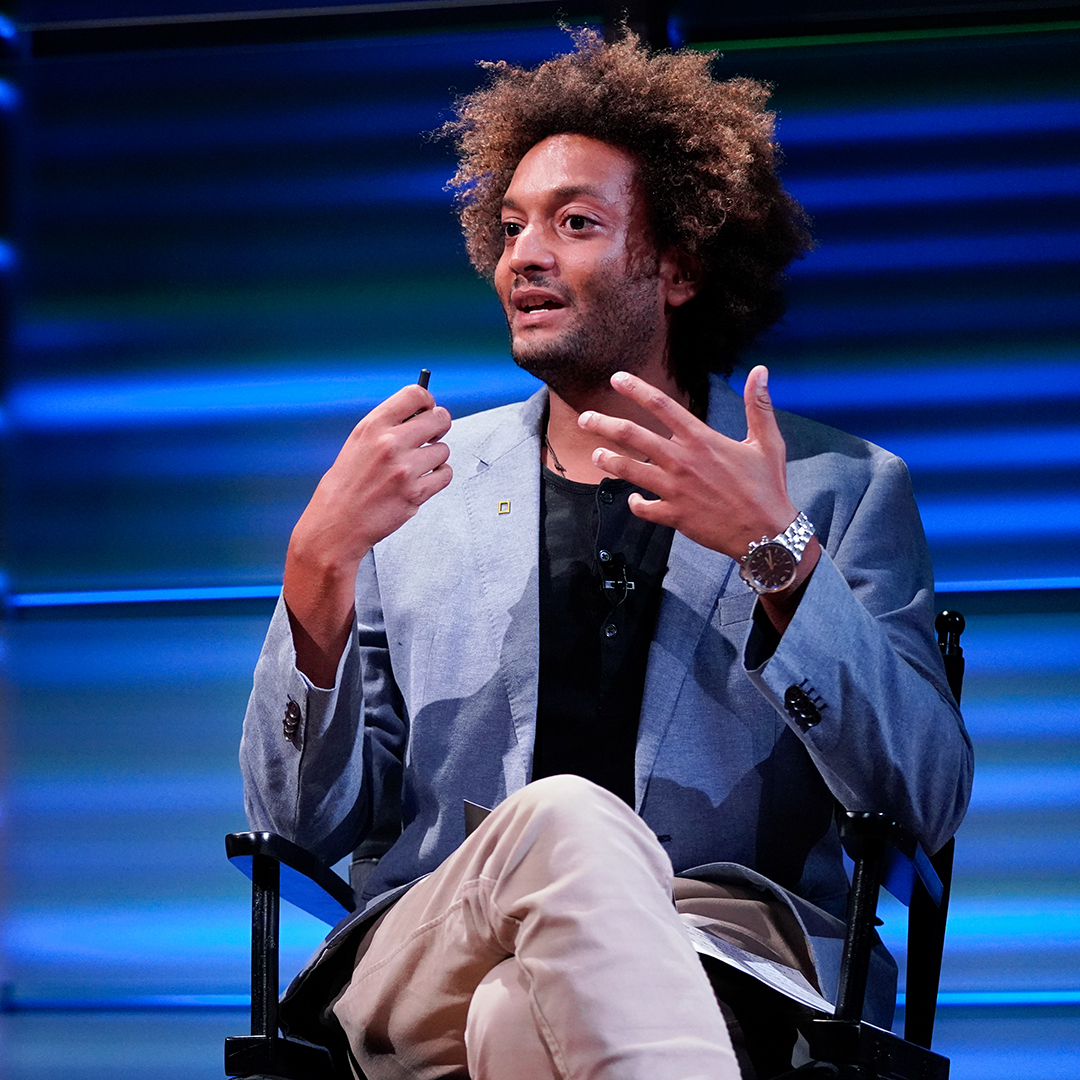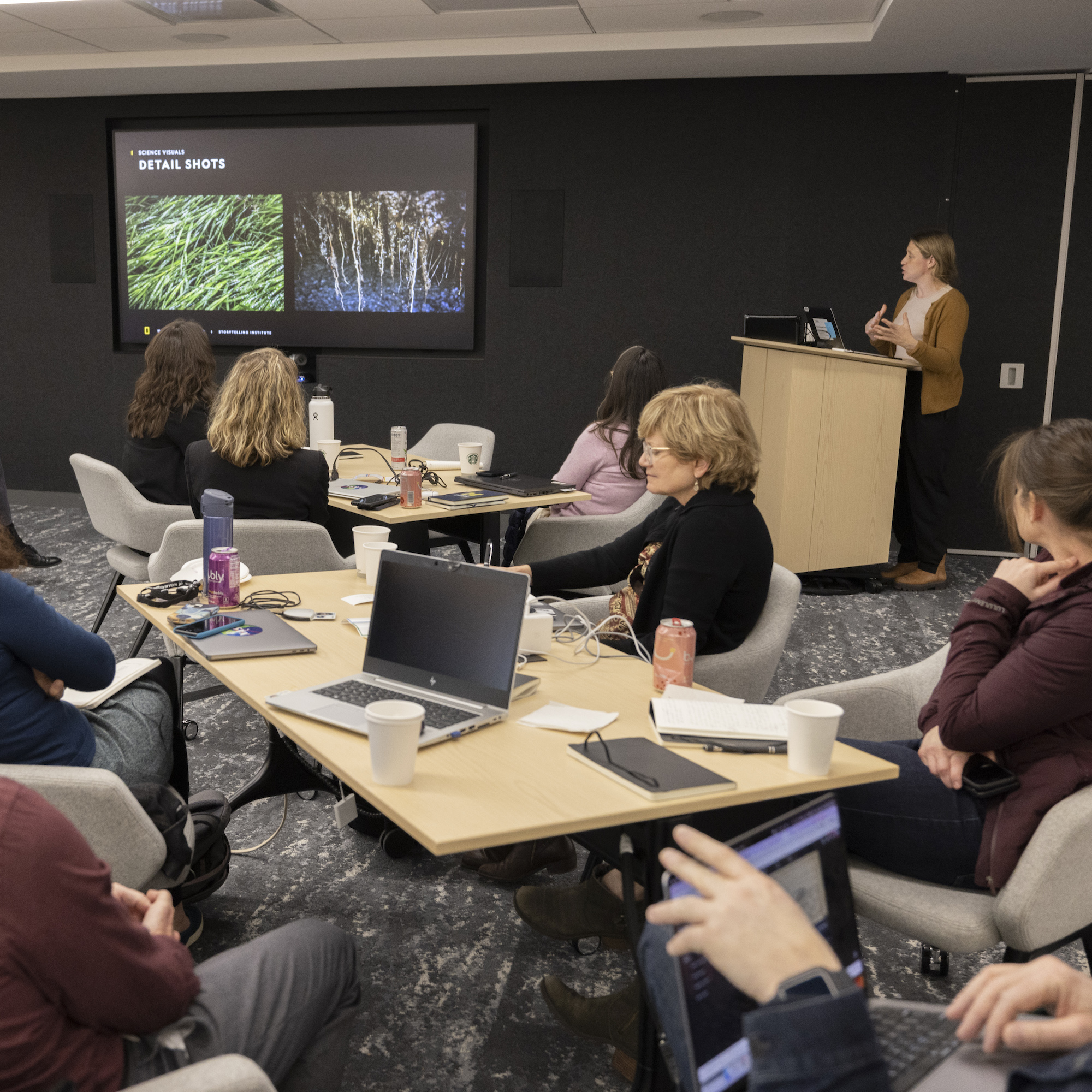Storytelling Workshops Led
by Nat Geo Explorers
Custom 1- and 3-Day Workshops
Our workshops are designed to deliver value to participants after they leave the room. We work with each participant to craft their story in a way that feels authentic to them, but that maximizes the impact to reach a defined goal, whether that is to sway a donor, or get buy-in on a new project.

Explorer-led
Our workshops are led by Explorers—the skilled storytelling grantees that create National Geographic’s unique content.

Live Content
Workshops use a hands-on learning method with trainers helping participants develop their chosen story content.

Onsite, In-person
Workshops are held at your location so team members can easily attend. The ideal workshop length is a three-day hands-on experience.
Storytelling Workshops
The Power of Story
Why is it so important that we learn how to tell our stories? Neuroscientists
have proven that people who hear relatable stories are more motivated and inspired to
take action than if they just heard facts. Discover the art and science of storytelling.
The Power of Images
The human brain processes visual information 60,000 times faster than text, and 90% of information transmitted to our brains is visual. Learning how to see is essential in creating great photographs. Planning and working a scene is also key. Even if you do not have a fancy camera, the best camera to use is the one you always have with you–your smartphone.
Science Seeing
Complex logistics and elaborate equipment are not required to produce pictures that effectively convey scientific research. What really matters is the thinking going into the picture. Learn how to convey complex science ideas through visual treatments that are both clear and compelling.
Presentation Design
In a presentation deck, how much information is too much? What should be conveyed in words versus pictures? One effective way to approach this is if you can see it, don’t say it. Learn the difference between a presentation deck and an information deck. Simple design considerations can help present the information more clearly.
The Power of Video
Why are moving images so arresting? Learn to shoot and edit a short film with just your cell phone and basic software alongside a National Geographic Explorer. Explore ways to take the knowledge and experience from this video storytelling process and expand that for greater impact.
Story Building
Define and develop your authentic story through a series of exercises that include active listening and mirroring, story mapping, and refining and rehearsing. Honing your story skills allows you to tell your story on different platforms for diverse audiences.
Curating a Photo Story
You’ve taken some photos, but how do they fit together to create a compelling photo story? Learn how to edit down your photo shoot into a smaller, ranked selection. From there, learn how to sequence your images to build meaning and structure in a seamless visual narrative.
Science into Story
New scientific advances are announced every day. How is an abstract converted into a pitch and then into a story? How do you make a science story accessible for a non-science audience? Creating a clear and compelling message increases your chance of engaging both editors and readers.
Presentation Delivery
Telling a story in front of an audience can be both intimidating and exhilarating. The audience is a participant in your story–they have a part to play because each person will receive your message differently. It is your responsibility as a presenter to know your audience and to identify the message you want to convey.
Seeing Data
The best kind of infographics and maps don’t just lay out information for the viewer to absorb. They tell stories structured to make complex data accessible and easily shared on social media. Behind these infographics is the data collection that guides the resulting analysis and visualization, and ultimately the creation and presentation of a story that inspires action.
Photo credits: Mikey Schaefer, Leigh Vogel, Rolf Sjogren (2), Thalefang Charles, Carsten Peter, Cory Richards, Andrew James Bardon, Nicholas Locatelli, Siraj Ahmed, Randall Scott, Sam Wolson